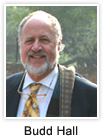 The World Congress of Comparative Education Societies that met recently in Buenos Aires Argentina June 24-28, 2013 provided an opportunity to reflect on the importance of the contributions of the late Paulo Freire, the remarkable Brazilian intellectual who changed the way that we think about education, not just in his native Northeastern Brazil, but all around the world. Paulo Freire’s ideas about linking literacy, culture, conscientization to the struggle for dignity, equality and a transformed life began in 1963 in the community of Angicos, a poor community in North Eastern Brazil where the Movimento de Educacao de Base (MEB) had been working since 1961. Carlos Alberto Torres, the Buenos Aires born comparative educator from UCLA in the United States reminded the plenary of this story and challenged participants to think of what this means for us today? Education, said Paulo, is never neutral. It is either part of the transformation towards what we spoke of in Barcelona in May as the “Great Turning” or it is part of maintaining the status quo.
The World Congress of Comparative Education Societies that met recently in Buenos Aires Argentina June 24-28, 2013 provided an opportunity to reflect on the importance of the contributions of the late Paulo Freire, the remarkable Brazilian intellectual who changed the way that we think about education, not just in his native Northeastern Brazil, but all around the world. Paulo Freire’s ideas about linking literacy, culture, conscientization to the struggle for dignity, equality and a transformed life began in 1963 in the community of Angicos, a poor community in North Eastern Brazil where the Movimento de Educacao de Base (MEB) had been working since 1961. Carlos Alberto Torres, the Buenos Aires born comparative educator from UCLA in the United States reminded the plenary of this story and challenged participants to think of what this means for us today? Education, said Paulo, is never neutral. It is either part of the transformation towards what we spoke of in Barcelona in May as the “Great Turning” or it is part of maintaining the status quo.
This is the message that lies behind the presentation of the UNESCO Chair in Buenos Aires, where Budd Hall (UVic, Canada), Jose Blanes (CEBEM, Bolivia) Nieves Tapia (CLAYSS, Argentina) and Jutta Guthberlet (UVic-USP-Brazil). Our panel, part of the congress that saw 2700+ participants from all over the world attend, focussed on the role of knowledge, universities, community groups, students in supporting deep social change. It explored the role of networks in strengthening local action and building solidarity to overcome obstacles. The panel underscored the message of Paulo Freire: Universities are not neutral-they are either part of the great turning or they are part of the structures of domination.
The deeper questions remain how can we continue to deepen, strengthen and encourage those transformative energies that will enable the kinds co-construction of knowledge and action needed?




